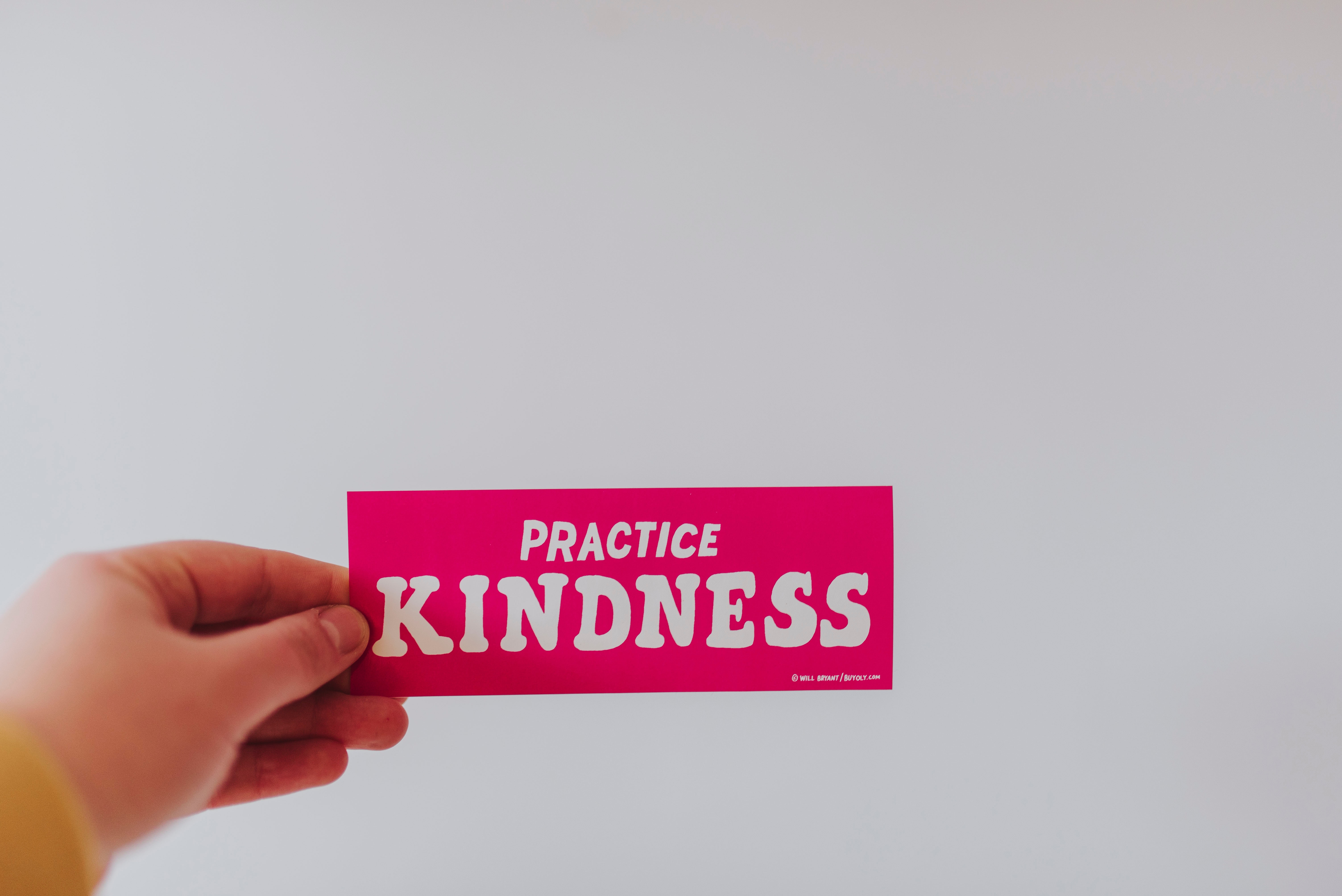As children, we learn to be kind. Do you want to have friends? Be kind. Do you want to be well-liked? Be kind. But what if there was more to kindness? It’s more than just a good feeling. Science shows that when we show kindness we reap physical and mental benefits. Performing and witnessing acts of kindness have proven mental and physical benefits.
Mental Benefits
When we are kind, it lowers our stress levels. And that’s science. A study in a 1998 Integrative Psychological and Behavioral Science Journal, found that those who were kind had 23% less cortisol, which is the stress hormone. Kindness also lowers our anxiety. The University of British Columbia studied highly anxious people who performed a minimum of 6 acts of kindness per week. After a month, their moods and relationships improved and they became less anxious (1,2).
(Mental illnesses such as depression are nothing to take lightly. If you believe you may be depressed, please see a counselor and get help. I am not an expert on the subject.)
Dr. Post of Case Western Reserve University School of Medicine found that kindness could help lower depression. (1,2)
Want to feel good? Be kind. According to a Psychology Today article, being nice can help with the production of serotonin. Serotonin is the neurotransmitter commonly known as the “helpers high.” It regulates things from mood to appetite to even sexual desire and function. Kindness also releases the love hormone, oxytocin. Oxytocin raises self-esteem and makes us more positive. It also can help lower blood pressure, but we’ll discuss that later (1)!
Finally, kind people are happy. A survey in 2010 by Harvard Business School, found that financially generous people were the happiest (1).
Physical Benefits
It may surprise you to learn that in addition to having mental benefits, kindness can also help your physical body. A study at UC Berkeley showed that half of the participants who performed acts of kindness had higher levels of energy (1). I don’t know about you, but if I could gain an ounce of energy with an act of kindness I’m all in! Being kind can also help with pain. You see, when we are kind it produces endorphins, which as Elle Woods tells us “makes you happy”. Researchers at the University of the South found that performing acts of kindness can help you move past painful experiences more than selfish indulgences (3).
Kindness also can help you lower blood pressure. Dr. David Hamilton says that kindness releases oxytocin. “Oxytocin causes the release of a chemical called nitric oxide in blood vessels, which dilates (expands) the blood vessels. This reduces blood pressure….” (4) Let’s be kind to our hearts by being kind to others (Was that cheesy?).
What’s the most compelling reason to be kind? It can extend your lifespan. Kindness is how we gain and keep friends. Friends keep us happy and healthy, without them, we are at a larger risk for heart disease (2). Christine Carter of UC Berkeley found that people 55+ who volunteered for at least 2 organizations were 44% less likely to die early.
Ways to show kindness
Now that you know all of the benefits of kindness, I’m sure you like me are ready to implement some more kindness into your life! Being kind does not have to be a difficult task. It could be as easy as saying an encouraging word to someone. You could show kindness by writing a letter to some people. Of course, you could donate money to charity or give to someone in need. I’ve heard instances of people buying the drinks or meals of those behind them. A group in a class I took, once left a jar of change by a few vending machines. You could also volunteer to show kindness. You could play with a child instead of passing them by or telling them to calm down. Show kindness to the elderly. Go to nursing homes. Visit the shut-ins.
Resources
1: https://www.randomactsofkindness.org/the-science-of-kindness
2: https://www.quietrev.com/6-science-backed-ways-being-kind-is-good-for-your-health/
4: http://drdavidhamilton.com/the-5-side-effects-of-kindness/


